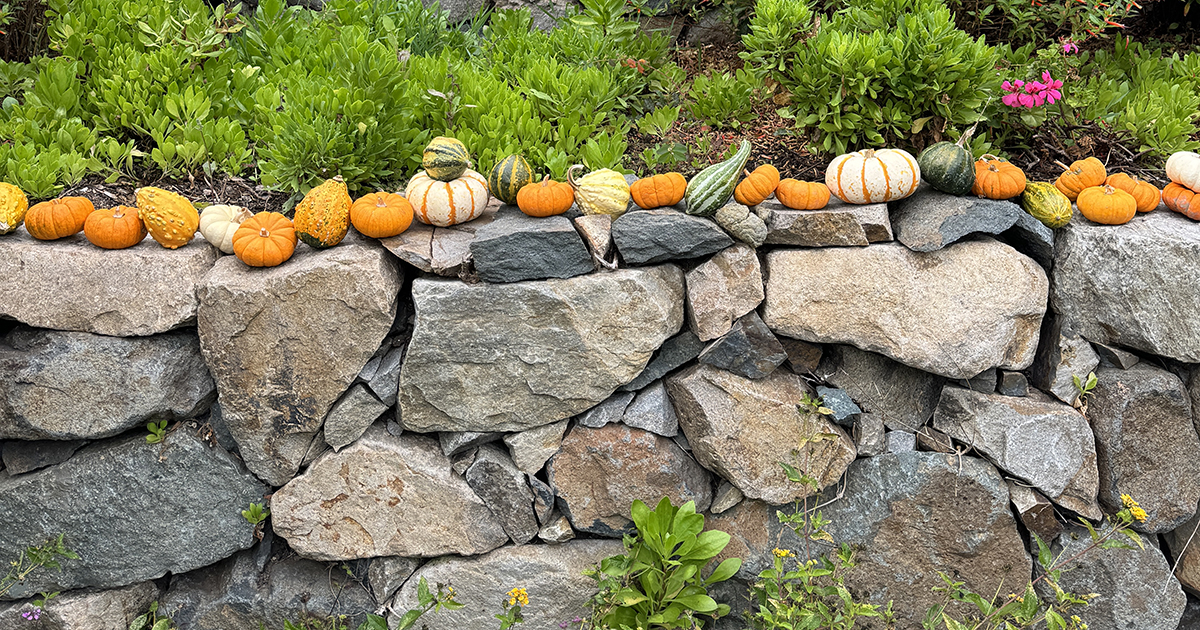
“One day you will look back and see that all along you were blooming.”
— MHN
Twenty-eight years ago, when I was a freshman in high school, my English teacher gave my class a homework assignment entitled, “Advice for a Younger Generation.” The concept of the assignment was simple: Each student had to interview a person who was over the age of 25, gather enough information to write a basic biography of their life and find out what their top tips are for a younger generation. I chose to interview my dad. He was 52 at the time and he gave me 18 pieces of advice.
I had completely forgotten about all of this until recently when I was visiting my parents house. My mom had me clean out a few old boxes stored in the attic. In one of these boxes I found the original “Advice for a Younger Generation” assignment dated April 22nd, 1996.
I read through it and was admittedly blown away — there’s lots of solid wisdom within. Even though my dad’s advice is generally relevant to a person of any age, my 42-year-old self can relate to it in a way my 14-year-old self didn’t quite grasp at the time. In fact, the first thought that went through my head was, “Wow, my dad was right!”
Here are my dad’s original 18 pieces of advice for a younger generation, transcribed and copyedited with his permission, along with a couple new (and significant) additions — bringing the list to 20 in total. He literally sent me numbers 19 and 20 yesterday and told me to “update the list.” (Haha. I’m not joking.) And note that my now 80-year-old dad was inspired to expand on his original list after a previous version of this article was published here on the blog six months ago:
1. Your 30’s, 40’s, and 50’s won’t feel like your 30’s, 40’s, and 50’s.
Adults are just older children. When you get older you won’t feel as old as you imagine you will. For the most part, you still feel exactly the way you feel right now, just a little wiser and more confident. You’ve had time to establish your place in the world and figure out what’s important to you. Don’t fear growing up. Look forward to it. It’s awesome!
2. Bad things will happen to you and your friends.
Part of living and growing up is experiencing unexpected troubles in life. People lose jobs, get in car accidents, and sometimes die. When you are younger, and things are going pretty well, this harsh reality can be hard to visualize. The smartest and oftentimes hardest thing we can do in these kinds of situations is to be tempered in our reactions. To want to scream obscenities, but to be wiser and more disciplined than that. To remember that emotional rage only makes matters worse. And to remember that tragedies are rarely as bad as they seem, and even when they are, they give us an opportunity to grow stronger.
3. Everyone can make a significant difference.
Making one person smile can change the world. Maybe not the whole world, but their world. So start small and start now. Be patient. Be present. Be kind. Compliment people. Magnify their strengths, not their weaknesses. This is how to make a difference, in your own life above all, and in all the lives you touch.
4. First impressions aren’t all they’re cracked up to be.
Everyone and everything seems normal from a distance, or at a glance. The 10th, 20th, or even the 50th impression is when you start to truly understand someone else for who they truly are. Be patient and present. Pay attention to their habits and rituals. We are what we habitually do.
5. Big results come when you narrow your focus.
Concentrate your efforts on smaller and smaller areas. Specialize. When your efforts are diffused over a wide area they won’t have much of an impact. So focus on smaller areas and your efforts will be felt more fully. It could take time for growth to happen, but keep that focus narrow and the results will come in time.
6. Love yourself. Become the best version of you.
Strive to be the “you” you want to be. Nourish your mind and body. Don’t stop learning. Educate yourself every day until you die. Study. Read. Devour new ideas. Engage with people, including those who think differently. Ask questions. Listen. And don’t just grow in knowledge. Be a person who gives back too.
7. Most of the time you just have to go for it, again and again.
Put your uncertainty and fears aside for a second and ask yourself this: “If I try and I don’t get it right the first time, what will I have lost and what will I have gained?” The answer is: You will have lost nothing but a little bit of your time while gaining an important lesson that will help you get it right the second or third time. People rarely get it right the first time. In fact, usually the only people who ever get it right are those who continue going for it even when they’ve come up short numerous times before.
8. We tend to get more when we give.
Supporting, guiding, and making contributions to other people is one of life’s greatest rewards. Almost everything you do comes back around in some way. Let your actions create positive ripples in your life.
9. Not much is worth fighting about today.
If you can avoid it, don’t fight. Step back from arguments with your spouse, family members, or neighbors. When you feel anger surging up and you want to yell that vulgar remark on the tip of your tongue, just close your mouth and take a break. Sleep on it. Give yourself space. Let calmness be your superpower, and then revisit the situation if you must. You don’t have to be right or win an argument immediately.
10. Don’t try to impress everyone.
Purposely impressing people is an act that brings nothing but a momentary ego boost. Be real with people instead. Connect with fewer people on a level that is deeper and more profound.
11. Keep having fun.
Fun is way underrated! With all of life’s responsibilities, fun will sometimes seem like an indulgence. It shouldn’t be. It should be a requirement. Make time for fun and casual play. Schedule it in until the day you die!
12. Keep it simple.
There is a world of magnificence hidden in simplicity. Identify the five most important things in your life now and focus on those things in your free time. Let the other stuff go. Stop the senseless busyness most people fill their lives with, so you can enjoy what’s truly important to you.
13. Little things stick with you.
So pay attention to them. Like watching your child sleep. Preparing a holiday meal with your family. Sharing a great laugh with an old friend. This is the real stuff life is made of. Tune in.
14. Less advice is often the best advice.
Most people don’t need lots of advice, they need to live. I’ve seen young, rocky relationships develop into wonderful marriages, and I’ve seen fleeting inspirations ignite a lifetime of passion and happiness. Our life stories, like the answers we give to long essay questions, are uniquely ours. What people want to know is already somewhere inside of them. We all just need time to think, be, and continue to explore the imperfect journeys that will eventually help us find our long-term direction.
15. Manage your time diligently.
Your situation and environment is ever changing, so be careful not to confuse things that are urgent with things that are important. Evaluate your obligations on a monthly basis and be willing to make necessary shifts. And remember that good, admirable obligations, like volunteering at church, will sometimes need to be put on hold temporarily for something else. And that’s OK. You can’t do it all.
16. Manage your money diligently.
Don’t buy stuff you don’t need. Don’t spend more than you make. Don’t spend to impress people. Don’t let your money manage you in the long run. Financial stability is peace of mind when you get older.
17. What you learn in school does matter.
While you may not use the specifics of every classroom lesson, every lesson does expand the core thought process of your mind. Over time you will develop problem-solving skills that are universally applicable. No single classroom lesson can teach this, and no single classroom lesson is more important.
18. Dreams will remain dreams forever if you don’t take action.
Don’t dream about it anymore. Start doing it a little bit every day. In 30 years from now, what is it that you will regret not having accomplished, appreciated, or attempted? Do it, appreciate it, and attempt it starting NOW!
19. If you truly want something, you also have to want its costs.
When it comes to achieving the dreams just mentioned in point #18, it’s important to realize that most people want the reward without the risk — the shine without the grind. But you can’t get to a destination in life without a journey. And a journey always has costs. At the very least you have to invest your time and energy into taking consistent steps forward.
So instead of only thinking about what you want — a dream or goal — also ask yourself: “What am I willing to invest (or give up) to get it?”
Or for those inevitably hard days: “What is worth struggling for?”
Seriously, think about it: If you want the strong and athletic body, you have to want the sore muscles, the sweaty clothes, the mornings or afternoons of exercise, and the healthy meals. If you want the successful business, you have to also want the longer days, the stressful business deals and decisions, and the likelihood of failing many times to learn what you need to know to succeed in the long run. But if you catch yourself wanting something day in and day out, month after month, yet you never take consistent action and thus you never make progress, then maybe it’s time to let that goal go, because you don’t actually want to struggle through the steps required to achieve it — the costs seem too high to you. And that’s OK — it’s OK to change your mind or dream a new dream. The key is to be honest with yourself along the way.
20. Life is incredibly limited, and there’s beauty in this truth.
Let’s end this list right by bringing it full-circle to the underlying themes we started out with in points #1 and #2 — time flies and life is short. Because the truth is, you can never read all the books you want to read. You can never train yourself in all the skill sets you want to have. You can never be all the things you want to be and live all the lives you want to live. You can never spend all the time you want with the people you love. You can never feel every possible temperature, tone, and variation of emotion in a given situation. You are incredibly limited, just like everyone else.
In the game of life, we all receive a unique set of unexpected limitations and variables in the field of play. The question is: How will you respond to the hand you’ve been dealt? You can either focus on the lack thereof or empower yourself to play the game sensibly and resourcefully, making the very best of every outcome as it arises, even when it’s heartbreaking and hard to accept.
In the end, what matters most is to focus on what matters most. By doing so you get to truly experience the various sources of beauty and opportunity in your life while each of them lasts. Let’s take a moment and revisit the notion of being limited by the reality of not being able to spend all the time you want with someone you love. When someone you love passes away too soon, that’s undoubtedly one of the most heartbreaking limitations to cope with (and the general principles for coping with this kind of tragic limitation are also applicable to less severe situations too)…
Imagine a person who gave meaning to your life is suddenly no longer in your life (at least not in the flesh), and you’re not the same person without them. You have to change who you are — you’re now a best friend who sits alone, a widow instead of a wife, a dad without a daughter, or a next-door neighbor to someone new. You want life to be the way it was before death, but it never will be.
I have personally dealt with the loss of siblings, parents, and best friends to illness and accidents over the years, so I know from experience that when you lose someone you can’t imagine living without, your heart breaks wide open. And the bad news is you never completely get over the loss — you will never forget them. However, in a backwards way this is also the good news…
You see, death is an ending, which is a necessary part of living. And endings are necessary for beauty too — otherwise it’s impossible to appreciate someone or something, because they are unlimited. Limits illuminate beauty, and death is the definitive limit — a reminder that you need to be aware of this beautiful person or situation, and appreciate this beautiful thing called life. Death is also a beginning, because while you’ve lost someone special, this ending, like every loss, is a moment of reinvention. Although deeply sad, their passing forces you to reinvent your life, and in this reinvention is an opportunity to experience beauty in new, unseen ways and places. And finally, of course, death is an opportunity to celebrate a person’s life, and to be grateful for the priceless beauty they showed you.
Bottom line: There’s always progress and beauty to be found in accepting and respecting life’s inherent limitations, and then making the very best of what’s in front of you.
Closing Thoughts & Next Steps…
My dad is 80-years-old now, and although he generally agrees with his younger self’s advice, he also admits he’s learned some new tricks over the past 28 years. “That’s why I wanted to add numbers 19 and 20 — just to flesh things out a bit,” he told me. And he intends to share some more life advice with us in the near future too, so sign up for our email updates and stand by for a new article from him. 🙂 In the mean time though, he told me to tell you to read his three favorite personal development books: “The 7 Habits of Highly Effective People”, “The Millionaire Next Door”, and “1,000 Little Things Happy, Successful People Do Differently” (yes, he shamelessly plugged our book, but he actually re-reads it for daily self-reflection, so it’s legit).
Finally, before you go, please leave my dad (and Angel and me) a comment below to let us know what you think of this article and its advice. Your feedback is truly important to us — it inspires us to continue writing and sharing here on the blog.
Photo by: Alex Proimos





